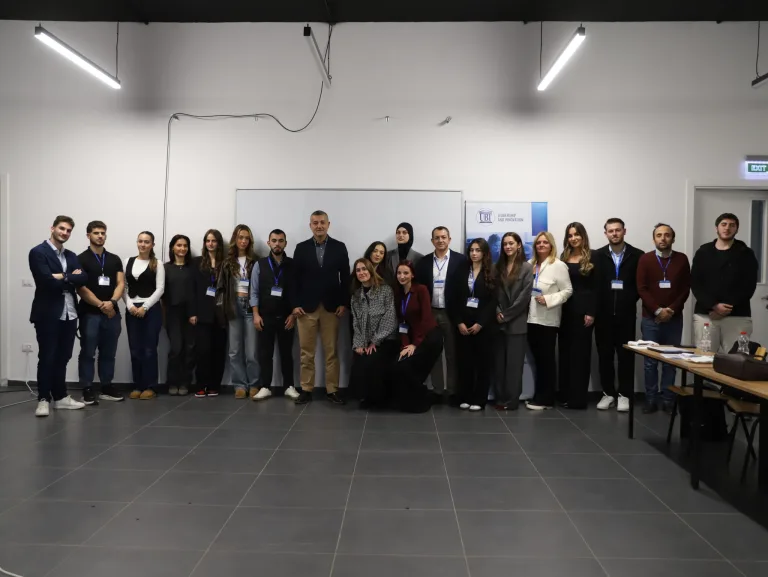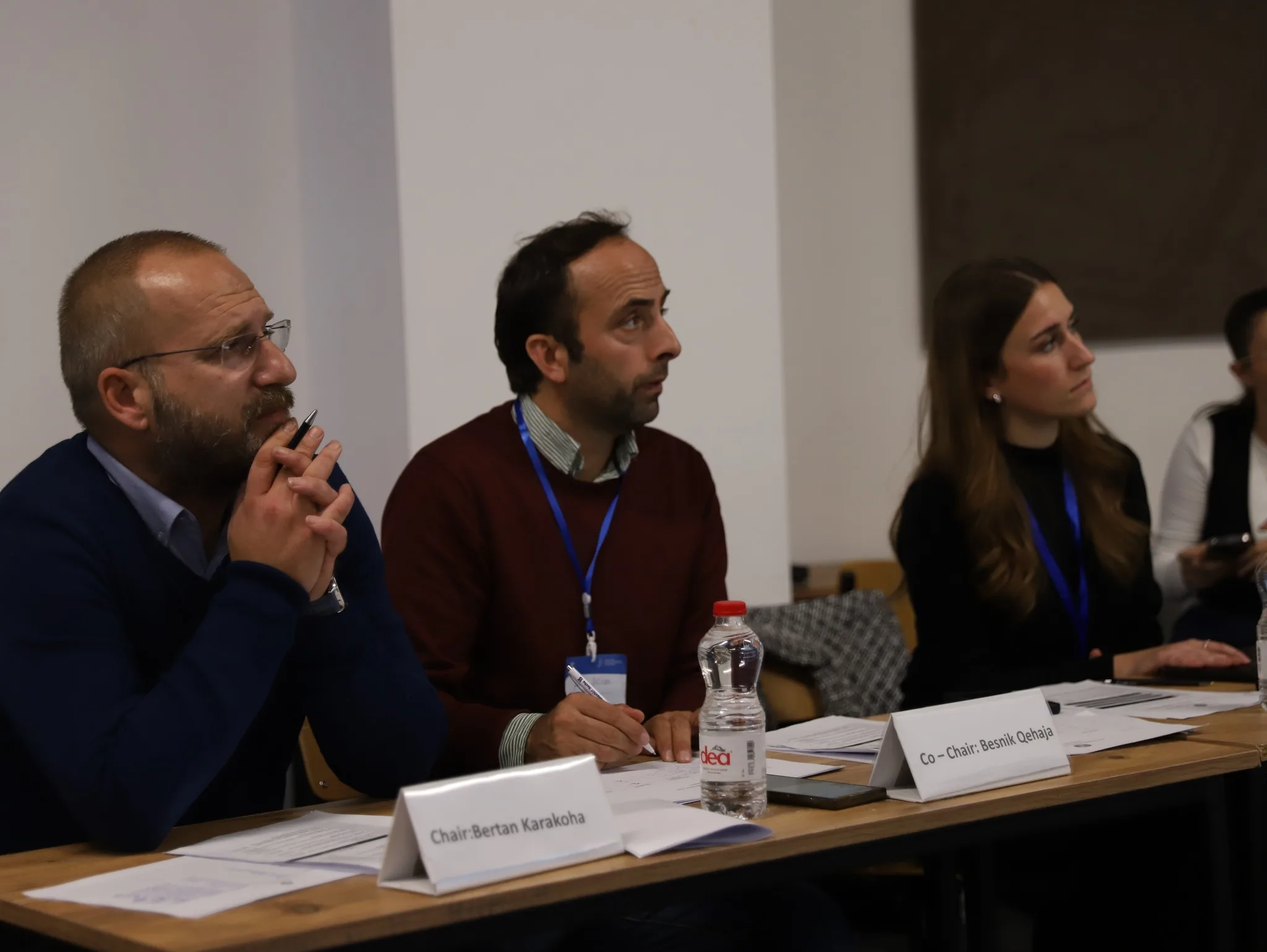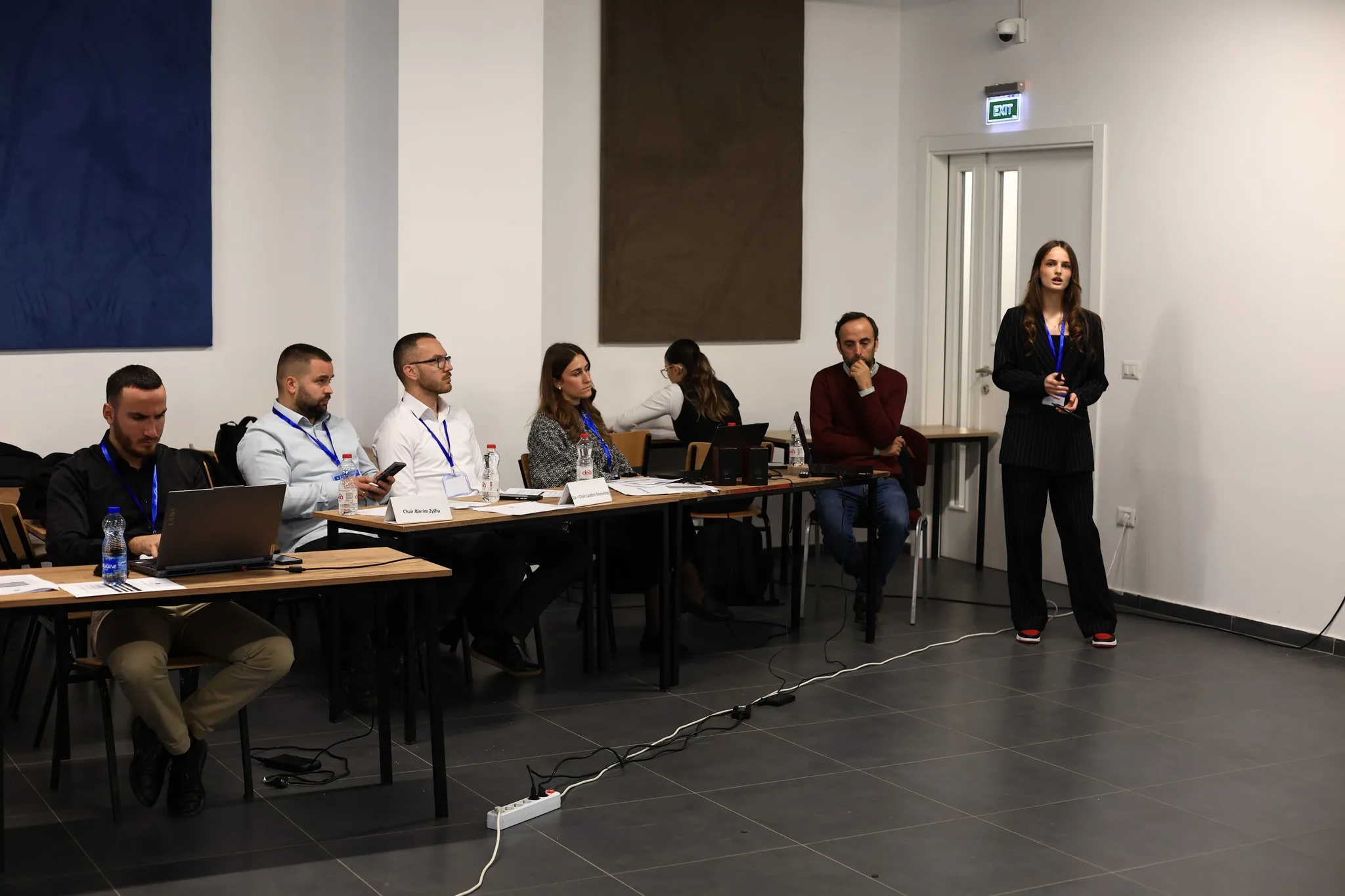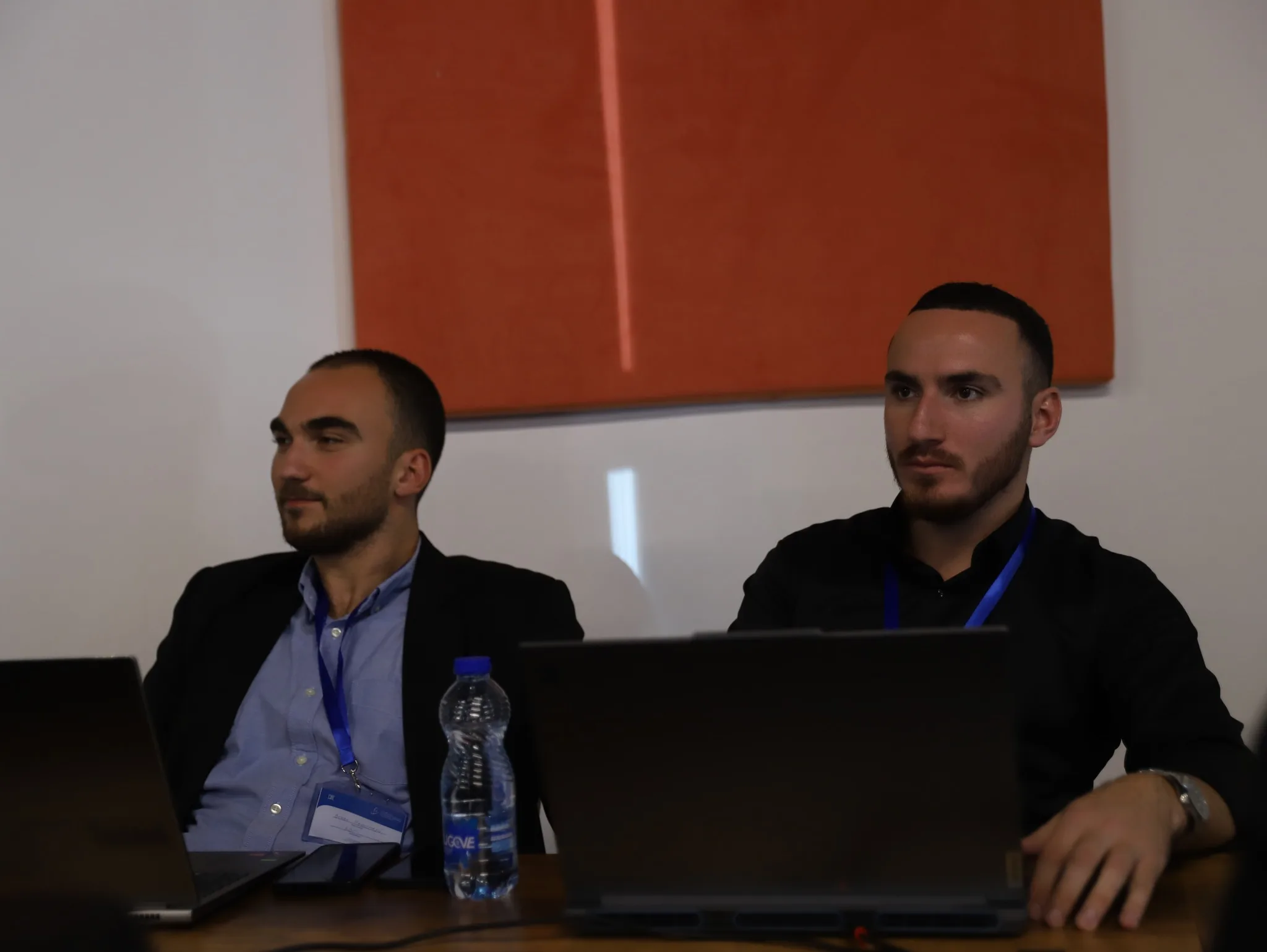
Researchers, Innovators, and Professionals from Around the World Gather at UBT’s International Conference on Computer Science and Engineering
26/10/2025UBT hosted the 14th Annual International Conference, where one of its key forums – the International Conference on Computer Science and Engineering – brought together researchers, academics, artificial intelligence experts, and technology professionals from all over the world.

Over two intensive days of discussions and presentations, participants shared the latest innovations in computer science, software engineering, artificial intelligence, networking, and cybersecurity.
This conference is part of the UBT International Conference 2025, one of the largest academic events in the region, aiming to integrate scientific research with labor market needs and sustainable technological development.
Session 1 – Software Engineering
Chair: Blerim Zylfiu
Co-Chair: Lavdim Menxhiqi
- Comparative Performance Analysis of Data Storage Systems (JSON, SQLITE, POSTGRESQL) in a Log Analysis Application – Edison Alushaj, Alma Novobërdaliu
- Multi-Agent and Retrieval-Augmented Techniques for Data Quality: A Systematic Literature Review – Benjamin Besimi, Visar Shehu, Adrian Besimi
- The Use of the Limit of a Sequence in Computer Science – Don Plakolli, Erona Maloku, Hizer Leka
- The Impact of Technology on Modern Communication: From the Era of Email to Mobile Applications and Social Networks – Vehebi Sofiu, Faton Kabashi, Lamir Shkurti, Greta Ahma, Mirlinda Reqica, Mirlinda Selimaj
- Prime Numbers Through the Ages: Implementing the Sieve of Eratosthenes in Java – Vesë Vrellaku, Hizer Leka, Alma Novobërdaliu
- Continuous Integration and Continuous Deployment (CI/CD) in Modern Software Engineering: A Comparative Study of Jenkins and GitHub Actions – Zana Sadiku, Lavdim Beqiri
- Friends Recommendation in Dynamic Social Networks Using Breadth-First Search Algorithm – Rigon Pira, Jeta Domi, Besnik Qehaja, Edmond Hajrizi
- An Empirical Analysis of Requirements for an Automated E-Learning Platform: The Case of Teachers in Kosovo – Bleona Çitaku, Faton Kabashi, Lamir Shkurti, Mirlinda Selimaj, Laura Gjikokaj
- Comparative Analysis of Monolithic and Microservices Architectures in Web Development – Denis Bajçinca, Faton Kabashi, Laura Gjikokaj, Mirlinda Selimaj, Lamir Shkurti
Session 2 – Artificial Intelligence
Chair: Bertan Karahoda
Co-Chair: Besnik Qehaja
This session included presentations on the use of artificial intelligence in healthcare, communication, agriculture, autonomous vehicles, sustainable environments, and combating misinformation.
Highlighted topics included:
- The Use of Artificial Intelligence for Fake News Detection – Altina Salihu, Diellza Berisha
- Forecasting Developments in the Agricultural Sector in Kosovo through Machine Learning – Mal Mikullovci, Mirlinda Reqica
- The Rise of Digital Therapists: A Survey of Artificial Intelligence in Mental Health Monitoring and Support – Greta Ahma, Gerta Ahma, Mirlinda Reqica, Vehebi Sofiu
- Implementation of an AI-Based Legal Assistant – Agon Azemi, Besnik Qehaja, Edmond Hajrizi
- Data Science against Human Trafficking: Evidence from North Macedonia – Krenar Mehmeti, Shkurte Luma-Osmani, Florinda Imeri, Agon Memeti
- Development of Advanced Algorithms for Autonomous Vehicle Navigation – Liridon Hoti, Besnik Qehaja, Jeton Sllamniku
- Is Artificial General Intelligence Possible? – Ermira Mehani
- Predicting Student Success Using Artificial Intelligence: Data-Driven Approaches for Early Intervention – Alma Novobërdaliu
Session 3 – Network Communications and Security (Blockchain)
Chair: Zhilbert Tafa
Co-Chair: Liridon Hoti
Key topics included:
- Cryptographic Challenges through Conditional Probability Inference – Vesë Vrellaku, Diellza Berisha, Redon Brovina, Ela Ramosaj, Stinë Demolli, Rron Morina
- Audio Signal Compression Using Wavelet Transform: A MATLAB Implementation – Rigon Pira, Argjend Azizi, Gentrit Halimi, Zhilbert Tafa
- Computational Analysis of GDP, Inflation, and Unemployment Trends in the Western Balkans – Adea Krasniqi, Vehbi Neziri
- From VPNs to Zero-Trust and Confidential Computing: A Comparative Study of AWS and Azure – Rinor Bytyqi, Lavdim Beqiri
- The Role of Mathematical Functions in Cryptography: A Case Study of Caesar Encryption – Endrit Ahmeti, Hizer Leka
- High-Performance SHA-256-Based Request Signing: A Comparative Study of Standard and Custom Implementations – Gentrit Halimi, Rigon Pira, Argjend Azizi
Session 4
- (Advanced topics selected from the field of computer engineering)
Poster Session
Generating Arithmetic and Geometric Sequences in Java: A Mathematical Approach – Anjesa Gashi, Hizer Leka
The ICCSIS 2025 Conference once again highlights UBT’s leading role in advancing scientific research, innovation, and technological knowledge in the region, providing a platform where academia, industry, and society converge to build Kosovo’s digital future.

